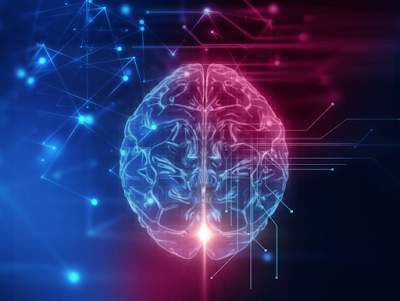Miswanting
The human brain is the most important organ of our body. All our logical and critical decisions, our reflex actions as well as the emotions we feel are the workings of the brain. But did you know our brain, or rather our mind here, has the tendency to be very wrong sometimes? To be miswanting something? The act of being mistaken about what and how much you will like something in the future is called miswanting. This was a study by Tim Wilson and Dan Gilbert. The first thought about this probably would be – “Yeah sure, we can be miswanting once in a blue moon, but that’s no big deal, is it?”. Well, that isn’t the case. Human brain performs the act of miswanting more often than they think, in fact, very often. I had recently enrolled in a course, ‘The Science of Well-Being’ from the Yale University, where they informed about the most annoying features of our mind.
#1 : Our minds’ strongest intuitions are often totally wrong
Woah! That might be a very big surprise but it’s true. That ‘gut feeling’ we refer to sometimes, it’s mostly wrong. So, basically our mind doesn’t actually know what we really want. It thinks that good grades, new gadgets, new clothes, good food is going to make you happy, but it really does not make you as happy as you think.
#2 : Our mind doesn’t think in the terms of absolutes.
What I mean by this is that we don’t know the exact that will make us happy, instead we think in relative terms, we look at a reference point to measure our happiness. A reference point is – A salient (but often irrelevant) standard against which all subsequent information is compared. The reference points have a very funny thing about themselves. Our mind doesn’t only set reference points to people of our level, like our classmates, but it can keep huge reference points like even Priyanka Chopra!
Now, reference points can be of two types. First, when we compare with ourselves. For example, let’s say you want to get grades in social science and you were targeting 90 out of 100 marks in your social science mid-term exams and you score 92. You would be very happy. However in final terms now you target 95 and you score 94. Now even though you scored more you will not be happy.
The second type of reference point is when we compare with others. This is called social comparison. I’m going to give you a very interesting study regarding this. In 2013, Burleigh and Meegan did a research. They told students that in the final exams, in all papers, they would give each child an extra 0.5 mark which will be rounded off. So if someone score 69.3, 0.5 marks will be added to it and rounded off so his final score will be 70. However if someone scores 68.8 then after adding 0.5 his score will be rounded off to 69. So in a nutshell everyone scores will go up but for some it may be more than others. They were told to vote, whether this 0.5 extra mark should be given to everyone or not. The results were quite astonishing. About 52% of the children in the grade rejected this proposal! The surprising part was that students were willing to give up their own extra grade just so that others won’t get more than them, due to this social comparison.
Another social comparison that we face is because of social media. Just imagine, Our self esteem decreases whenever we use social media.
#3 : Our minds are built to get used to stuff
Just imagine, your dad buys a new car, an Audi R8. The thought would be ‘This is the best thing that’s ever happened to me!!’. Yes, that might be your thought for about a week, but as you start travelling in that car, you tend to get used to it. This is called as hedonic adaptation, the process of getting accustomed to a positive or negative stimulus such that the emotional effects of that stimulus are attenuated (reduced) over time. As very well put by Dan Gilbert – ‘wonderful things are especially wonderful the first time they happen but their wonderfulness wanes with repetition’.
#4 : We don’t realise that our minds are built to get used to stuff.
This bias is called the impact bias, the tendency to overestimate the emotional impact of a future event both in terms of intensity and its duration. There was a study by Levine Et An in 2012, where he asked students to predict how happy they will feel if they get a grade lower or higher on a 9-point scale. This is what be found out :-
Predicted
|
Actual
| |
Higher than expected
|
8.27
|
6.55
|
Exactly as expected
|
7.81
|
6.45
|
Lower than expected
|
4.42
|
6.36
|
That was an astonishing result, wasn’t it? So, we actually don’t know what the level of our happiness is sometimes. And that is the same case with sadness as well. We think that when bad things happen to us, we are going to take a lot of time to recover from it. But what we don’t realise is that our minds is very resilient.
An abridged version has also been published in The Children's Post today.



Comments
Post a Comment